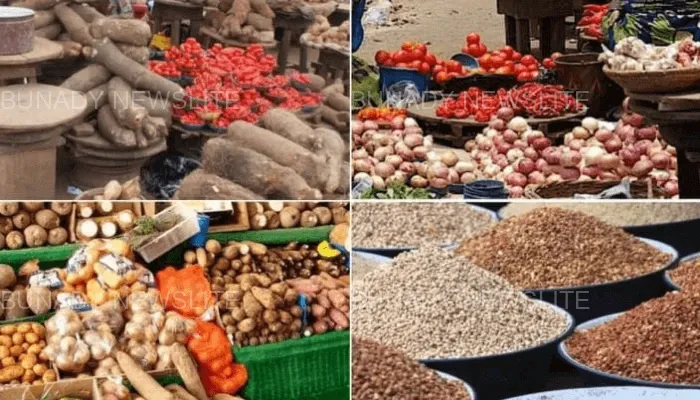Staple commodities such as rice, beans, and tomatoes have experienced notable price hikes, exacerbating the economic strain on citizens.
Rice Prices
The cost of rice has surged dramatically. By the end of 2024, a 50-kilogram bag of rice was priced at approximately ₦75,000 in Lagos and ₦99,000 in Abuja.
This sharp increase has been attributed to factors such as currency devaluation, removal of fuel subsidies, and disruptions in domestic production due to flooding and insecurity. These challenges have collectively led to a significant reduction in rice availability, thereby inflating prices.
Beans And Other Legumes
Beans, a vital protein source for many Nigerian households, have also seen price increments. While specific current prices vary by region and market dynamics, the overall trend indicates a rise due to increased transportation costs and supply chain disruptions.
The broader economic challenges, including inflation and currency depreciation, have further compounded these price increases.
Tomatoes And Perishable Goods
Perishable commodities like tomatoes have not been spared from price volatility. Seasonal fluctuations, coupled with transportation challenges and post-harvest losses, have led to inconsistent supply, thereby affecting prices. Consumers have reported paying higher prices for tomatoes, especially in urban centers where demand remains high.
Contributing Factors
Several factors have contributed to the rising food prices:
Inflation: Nigeria’s annual inflation rate reached 32.70% in September 2024, driven by increased costs of food and energy following subsidy removals and currency devaluations.
Currency Devaluation: The depreciation of the naira has made imports more expensive, affecting commodities that rely on imported inputs.
Insecurity and Climate Challenges: Ongoing conflicts in key agricultural regions and climate-related events, such as flooding, have disrupted farming activities, leading to reduced crop yields and supply shortages.
Impact On Households
The surge in food prices has led to widespread hunger, with reports indicating that two out of three Nigerian households struggle to afford food.
This situation has forced many families to alter their diets, reduce meal portions, or skip meals entirely. The economic strain is particularly severe for low-income households, where food expenses constitute a significant portion of their monthly budget.
Current Prices of Key Food Commodities:
Rice: A 50kg bag of rice is currently priced between ₦75,000 and ₦90,000.
Beans: A 50kg bag of beans sells between ₦78,000 and ₦85,000
Tomatoes: A basket of tomatoes is selling for approximately ₦55,000.
Yam: Each tuber of yam ranges from ₦3,000 to ₦4,000, depending on size and quality.
Palm Oil: A 25-litre container of palm oil is available for about ₦50,00


